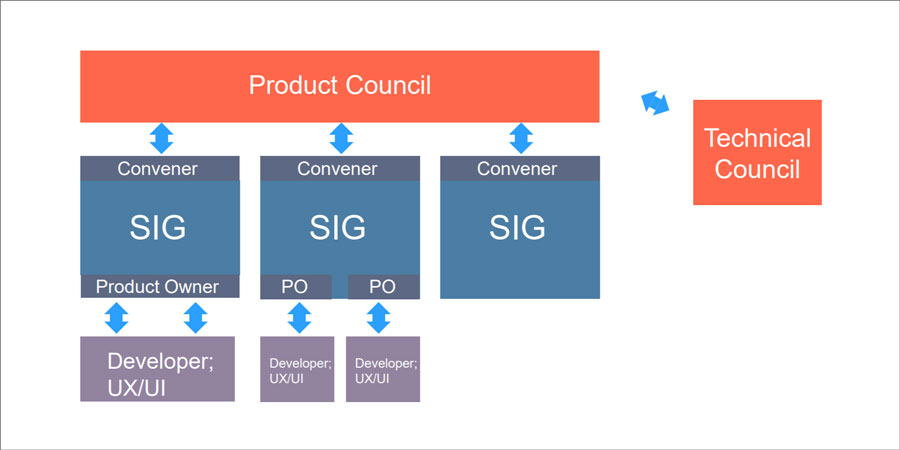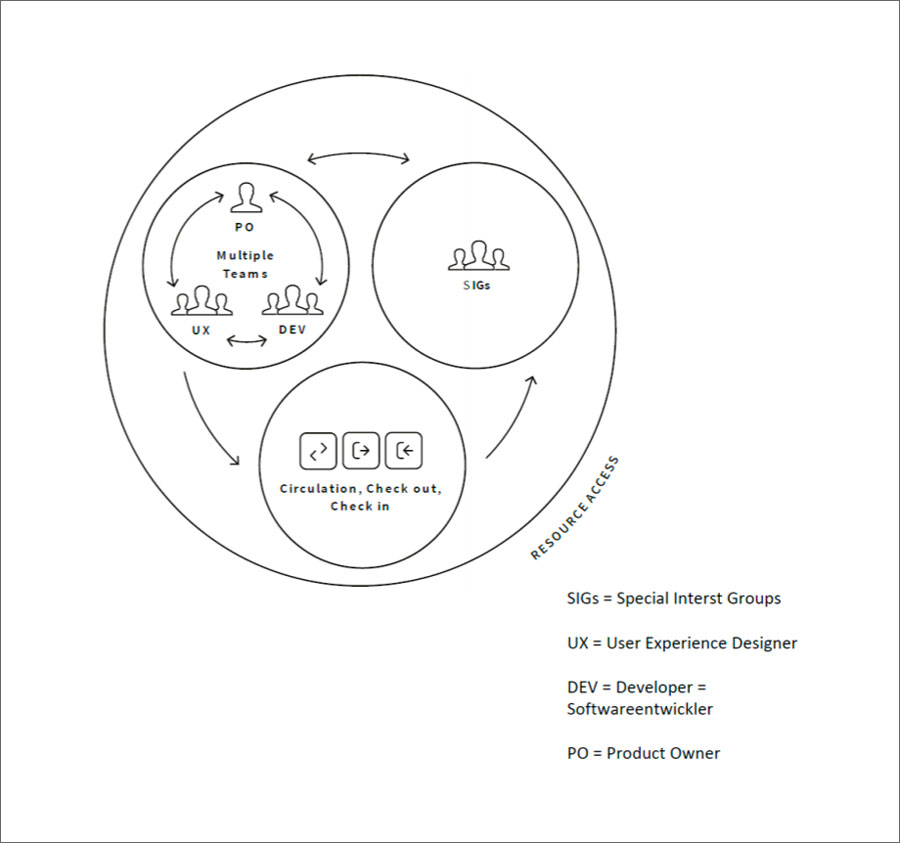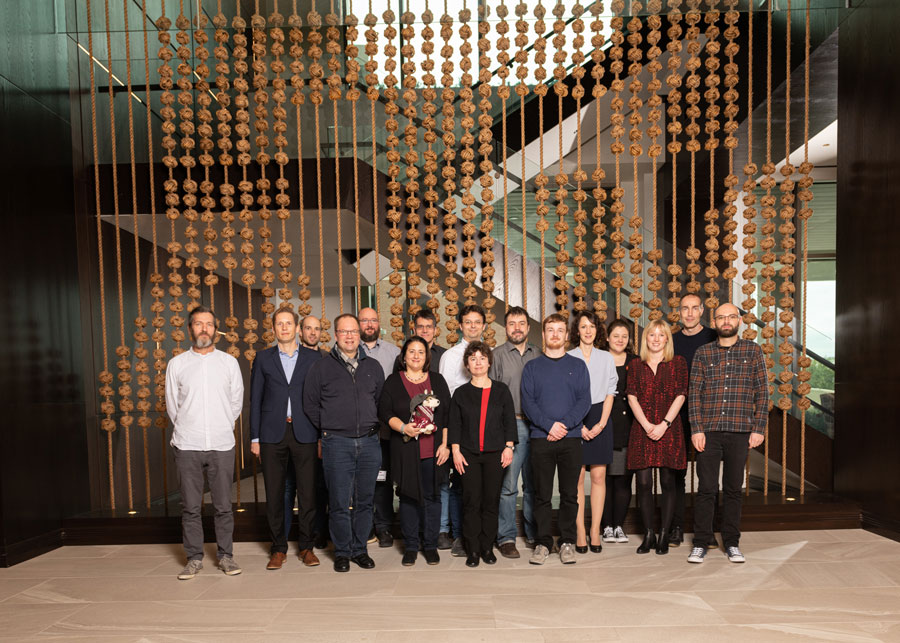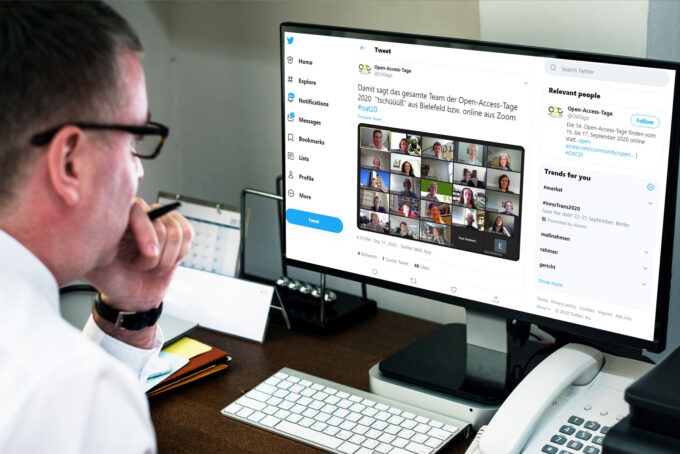
FOLIO Library Management System: Open Source on its Way into Everyday Library Life
FOLIO is an innovative open-source library management system. In 2020, it has reached a level of maturity that will allow more and more libraries to bring in a change of system. Felix Hemme reports on the organisation of the FOLIO project and the experiences of the ZBW during its introduction into productive operation.
by Felix Hemme

In 2020, FOLIO has reached a level that will allow a growing number of libraries to switch systems. In Germany, the UB Leipzig and the ZBW have introduced the FOLIO-ERM applications in parallel with the library systems that they have been using to date. In the USA, FOLIO is already being used productively by Simmons University, Duke University, Lehigh University, the Five Colleges and Cornell University.
The ZBW – Leibniz Information Centre for Economics has been using the FOLIO applications for managing electronic resources in productive operation since June 2020. The introduction was preceded by several years of work on the development of FOLIO as part of the Electronic Resource Management working group, which defined the technical requirements.
The Future of Libraries is Open
FOLIO stands for “The Future of Libraries is Open”. It has been created by a community which has come together to develop a redesigned platform for library services that supports traditional resource management needs and functions while focusing on innovation at the same time. The FOLIO library management system will be built on this platform. As it is extensible, additional functions can be implemented to enable new services for libraries.
In a development community, libraries from the Open Library Environment (OLE) community and the companies “EBSCO Information Services” and “Index Data”, joined by other commercial and non-commercial partners, are working on bringing an open-source alternative to proprietary library management cloud systems to the market.
FOLIO is Open Source
To be considered Open Source, software must meet specific criteria. The software must be openly accessible in the source code, for instance it must be available in a human-readable programming language. The source code of FOLIO is published and available on GitHub. In addition, the software must be able to be used, supplemented, changed and redistributed without restrictions and both with and without adaptations with no licensing costs. The Open Source Initiative specifies further criteria on its website.
It’s not just the technology of FOLIO that is designed to be open; cooperation in the development of the system is also open to interested parties. The teams involved in developing FOLIO are both culturally and intellectually diverse. This is one of the strengths of the project and can be seen as a great advantage as it brings in a wide variety of perspectives and ways of thinking. Librarians, backend and frontend developers, database engineers, UX/UI designers, project managers and quality assurance specialists work together in working groups – the Special Interest Groups (SIGs) – and contribute their expertise.
Work structures at FOLIO
Cooperation within the FOLIO community takes place at various levels. Strategic decisions are taken by the stakeholders EBSCO, Index Data and the OLE community. The Product Council (PC) and the Product Council Executive Committee make the working decisions. The Technical Council (TC), as a sub-group of the PC, is responsible for decisions on the technical infrastructure of the platform.

The specialist work is done in the SIGs. The SIGs are staffed by experts from library practice and define requirements and use cases. They are supervised by a convener and product owner (PO) and usually meet for weekly web conferences. Results of the SIG work are discussed by the POs with the developers and UX/UI designers and, once finalised, reported to the Product Council.

The ZBW as part of FOLIO
The ZBW has been part of this worldwide community since 2017 as a member library of the Common Library Network (GBV) and is involved in two thematic groups:
- The Metadata Management SIG deals with metadata management in FOLIO to define essential bibliographic management functions. In this work, it focuses on the exchangeability of data as a key component for greater cooperation between libraries and works closely with the “Resource Management” (acquisition) and “Resource Access” (loan) SIGs.
- The expert group for Electronic Resource Management (ERM) sets requirements for the management of electronic resources in the system. The proportion of electronic resources in libraries’ collections has increased significantly over the last decade and academic libraries now spend the bulk of their acquisitions budget on them. For electronic resources, however, mostly only access and use rights are acquired without the resources being transferred into the library holdings. This new acquisition approach places entirely new demands on the library management system. The traditional library systems currently in use are not meeting these demands.
Within the ZBW, a project group was initiated to take responsibility for analysing existing business processes and rethinking and structuring them on the basis of FOLIO. The group’s members also give content-related feedback on current topics of the ERM Sub Group in order to incorporate into the system any needs of the ZBW and potentially other libraries with similar requirements and core areas. Intensive testing before releasing new FOLIO versions, as well as before upgrading local installations, is also part of the process. In this way libraries can actively help to improve the software.
The FOLIO family: partners & contributors
Based on the project partnership between the North Rhine-Westphalian Library Service Centre (hbz) and the GBV, an active and diverse community has developed around FOLIO in recent years in Germany. In total, there are five German OLE partners: the GBV, the hbz, the Hessische BibliotheksInformationsSystem (HeBIS), Leipzig University Library (UB Leipzig) and Mainz University Library (UB Mainz). The Library Service Centre Baden-Württemberg (BSZ) of the Southwest German Library Network (SWB) is taking part in the ERM project. Developers and experts from many other German libraries are also working together across networks.
Working method of FOLIO
Web conferences involving members are used to coordinate joint activities, test and evaluate new functions and versions of FOLIO and, very importantly, to share and discuss the work progress of the internationally-oriented SIGs. It is not uncommon for German libraries, which have practised organised cooperation in library networks for decades, to place special demands on the software and its functions, which are therefore being incorporated into the development of the software.
The ERM Sub Group meets for an hour each week. Every second week is reserved for topics of ERM Implementers. These are libraries that are already actively using the apps or in the process of introducing them. Topics can be introduced in a variety of ways: via the communication tool Slack in ERM-specific channels, via the Confluence wiki or via direct contact with the conveners or the product owner. As the central specialist library for economics, the ZBW has some special requirements which have been introduced to the group, discussed, grounded in so-called “use cases” and developed. This is an example of how FOLIO can be further developed to better support the needs of your library as long as the functions also provide added value for other users.
Personal exchange and events
There is room for personal exchange at smaller working meetings and at larger events, such as the FOLIO days in Germany. As an alternative to this year’s FOLIO days, which have been postponed until next year due to the COVID-19 pandemic, a virtual exchange is planned for autumn 2020.

German delegation, Wolfscon 2020, copyright by EBSCO.
As an event for the global community, the World Open Library Foundation Conference (WOLFcon) has already been held twice in 2018 and 2020.
Outlook for FOLIO
There is still lots to do in the coming years: the work on new FOLIO functions and the extension of existing ones is not yet finished. Furthermore, the system must be integrated into the existing German infrastructure of library services and systems. The use of new systems, such as the Global Open Knowledgebase (GOKb), which will serve as a source of package metadata, must also be formalised. Several teams from all over Germany are currently working on developing specifications for data import from the K10plus joint catalogue and the national ERM system LAS:eR. Another team deals with data export to K10plus and connected discovery systems.
If, having read this article, you are interested in getting involved, the FOLIO team is always happy to welcome new members who would like to take part in developing an open library management system.
This might also be of interest to you
Featured Image: ZBW/Timo Wilke©, photo of the German delegation at the Wolfscon 2020:EBSCO©.
View Comments

User Experience in Libraries: 4 Best Practice Examples from the ZBW
Many people know that it is possible to deploy the methods of user experience in...



